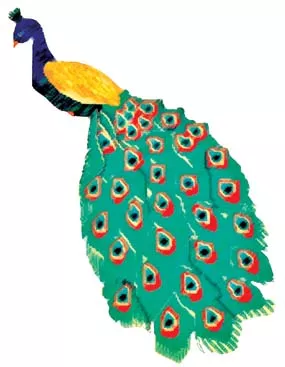Page 4 of 4
STRIPTEASEWhen Kathleen Mackert first moved to Las Vegas in 1991 with her four kids, she knew no one, other than her boyfriend, from whom she eventually split. She auditioned at the up-market Olympic Gardens topless club. “The manager told me I was stunningly beautiful with gorgeous breasts, but I needed to work out,” she recalls. He sent her to a sleazy club farther down the strip with reputed Mafia links. She kept away from the area where some dancers administered oral sex to patrons.
At first, she says, “I was out of my comfort zone.” Without the pasties mandatory in Utah, she felt naked. As long as she wore panties, she felt “sheltered,” she says. “At least that part of me was covered and sacred and not to be shared with anyone.”

Rena Mackert believes stripping empowered her sister. “The fact that she could do this, make men feel this and no one could touch her,” she says, had an enormous impact on her. “You create that fantasy that you want them,” Kathleen says. “They are desirable to you, that’s where the control comes in. It makes them feel they are the most important person in the world to me.”
She developed stripping alter egos named “Monique” and “Chalice.” Monique hailed from Coventry, England. Despite having not visited England, Mackert used a soft English accent and even developed a simple back story to explain how Monique ended up giving lap dances at a Las Vegas club. Mackert did stints at clubs such as the Crazy Horse Two, the Glitter Gulch and finally the Olympic Gardens.
While her children went to school, she slept. Then, in the evening, for two-hour periods, she worked out in a gym with other strippers. She and a group of stripper-friends looked out for one another, particularly when it came to club owners after sex.
Men who went to the clubs, she told one of her children, were dollar signs to her and other dancers. That said, the money she made as a stripper slipped through her fingers. When her youngest sister, Laura, then living off of child support and alimony, came to visit, Kathleen took her out for escargot and the best seats in the house at a David Copperfield show. But before she went to work, Kathleen Mackert would often be in tears.
She was on the verge of hating men. “If I did it much longer, I would never have a chance of a healthy relationship,” she says. She realized gradually that she was effectively reliving her sexual abuse through exotic dancing and trying to change the outcome, she says. In 1997, she was offered a job as a bartender at a chain saloon called Doc Holliday’s. She quit stripping the same day.
RESCUE ME
Kathleen Mackert runs her marble, plasma-TV festooned and mirrored-glass casino bar for an eight-hour shift as if, says one long-term customer—an overweight business adviser named Mike—she were “the queen bee.” His friend, a business executive named Mo, is shocked when he learns about her history. “She’s not a victim of that crap,” he snaps. “She’s a survivor, a victor.”
Bartending in Vegas is hardly free of sexual exploitation. If Kathleen Mackert didn’t look much younger than her 50 years, she says she wouldn’t be working where she is. “In this town, they have you audition in a bikini and dance on high heels to get a job bartending,” she complains.
Kathleen Mackert loves bartending not only for the good money, but because, she says, “I get a front seat on human nature.” She enjoys making people feel welcome as she practices her mixology. “Everyone needs that sense of belonging,” she says.
She has been able to give her children, she says, lives that are free of the scars she experienced growing up. Her son plays with his children as a father should. She did not attend her own father’s funeral in 2002. Neither did Myra or Kathleen’s other sisters. Clyde Mackert’s death at the age of 81 was tortured, Kathleen says. The woman who cared for him in his last years as he battled Alzheimer’s told Kathleen Mackert that, every time her father lay down in bed, he started screaming and flailing because he felt like insects were crawling all over him, eating his insides.
For both Kathleen Mackert and Myra Tolman, it is the children who finally unite them in an odd way. When the Texas raid was first broadcast in early April, Myra Tolman experienced a flood of memories. “It was harder on me than when they were going to take my own kids,” she says of the 1953 raid. “I don’t know why it affected me like that.”
Like her mother, Kathleen Mackert was overcome by the sight of the children boarding the bus from the ranch on their way to an unknown future. She and her sisters “had predicted this was going to happen for so long,” Kathleen says. “Some day in our lifetime someone would go in and rescue the kids from the abuse.”
The Texas courts have ruled—but Kathleen Mackert remains convinced the children still suffer. She’s waiting now to see what the DNA evidence taken from compound members will reveal about the bloodlines in the FLDS. She has no doubt many of the children are physically abused, as she and Rena Mackert both accuse Tolman, some of her sister wives and, worst of all, their father of doing to them as kids.
Kathleen Mackert recalls a time Tolman hit her on the behind with a hairbrush until it broke. Tolman acknowledges the incident, but says she hit her once with a brush that was all but broken. “I might have swat their butt, but I never, ever bruised them,” she says. Rena Mackert claims her mother took out her frustrations with her polygamous lifestyle on her children when she returned home from long hours working as an office manager at a doctor’s clinic. “I saw her use hairbrushes, wire hangers and pancake turners,” Rena Mackert recalls. Tolman denies this, although she admits one of the other mothers was very abusive to some of the children.

Which is why, looking at the YFZ ranch children returning home, she is reminded of herself as that 6-year-old girl with thick braids and a lost look in her eyes wandering the night-darkened streets of Kearns looking for love and shelter. “I would have loved to have been in their shoes, I would have loved to have been rescued.”